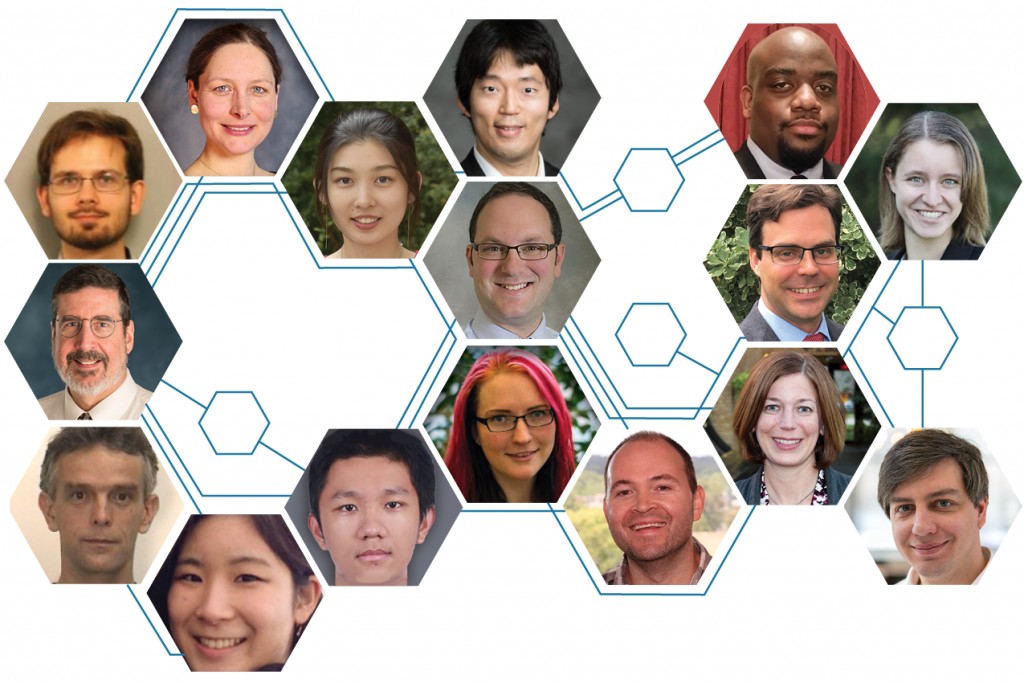CoderSpaces provide data science support and hands-on learning opportunities for faculty, staff, and students
Post by Jule Krüger, Program Manager for big data/data science. Jule developed CoderSpaces, weekly programming sessions at the University of Michigan in support of cutting edge research and scientific advancements, and has hosted them since 2019.

For the past two years, a team of data science experts have been experimenting with offering expert office hours to facilitate the adoption of new methods and technologies across the Institute for Social Research (ISR). These CoderSpaces provide immediate research support and offer hands-on learning opportunities for participants who wish to grow their coding and data science skills. The aim is to foster a casual learning and consulting environment that welcomes everyone regardless of skill level.
CoderSpaces are one way to help researchers thrive in an environment that is becoming increasingly complex. With the ongoing digitization of our daily lives, scholars are gaining access to new types of data streams that have not been traditionally available in their disciplines. For example, social scientists in the ISR at the University of Michigan have started to explore the ways in which virtual interactions on social media platforms can inform the scientific inquiry of socio-behavioral phenomena spanning many aspects of our lives, including election forensics, political communication, parenting, or insights gained from survey research.
Processing and analyzing novel types and ever bigger quantities of data requires that faculty, research staff, and students incorporate new research technologies and methodologies in their scientific toolkits. For example, researchers may need to move computationally intense analyses to a high performance computing cluster, which requires familiarity with batch processing, a command line interface, and advanced data storage solutions. Or researchers may be confronted with understanding and implementing natural language processing and machine learning to systematically retrieve information from large amounts of unstructured text.
Researchers who embark on the journey of exploring new technologies or methodology often can not fall back on curricula and training opportunities provided by their disciplinary peers. The relevant learning resources still need to be developed – potentially by themselves one day. To bridge training gaps, scholars look to example applications in other disciplines, engage in interdisciplinary research collaborations to access necessary expertise, and solicit help from available support units on campus to make methodological and technological innovations possible.
CoderSpaces provide just this kind of support. The sessions are hosted by faculty, research staff, and students who are willing to share their methodological and programming expertise with others. Initially, CoderSpaces were limited to the ISR community. Currently, anyone at the University of Michigan is welcomed to join, which has allowed us to diversify and broaden the available expertise and research applications. The weekly sessions were originally organized as in-person gatherings at the ISR with the intent to venture out to other campus locations. In March 2020, CoderSpaces moved to a virtual format facilitated by Zoom video-conferencing and a Slack communication space. Going virtual turned out to be a blessing in disguise as it enabled anyone at the university to participate regardless of their physical location, helping us broaden our reach across U-M departments and disciplines.
We have continuously increased the number of our CoderSpaces hosts over time. The current Winter 2021 team is our largest and most diverse yet, with 16 hosts representing nine campus departments that span the social and medical sciences, technical and statistical fields. The expertise we are able to provide ranges from high performance and parallel computing, cloud analytics, performance analysis, statistical modelling and machine learning, survey methods, natural language processing, research design, reproducible workflows, data management, programming in a variety of languages (bash, C, C++, C#, CMake/GNU Make, Fortran, Java, Javascript, Julia, LaTeX, Matlab, Markdown, Perl, Python, R, Rcpp, SAS, shell, Slurm, SQL, Stata), version control in Git, mobile app development, web scraping, and more. Typically, we are able to assist participants with their issues immediately during the virtual meeting. If a solution is not readily available, our hosts draw on their respective expertise and network to identify additional resources and offer support.
Participants join an ongoing Zoom meeting at the scheduled weekly times. The hosts on the call field questions and may use the breakout room feature to assist multiple participants simultaneously. For example, Bryan Kinzer, a PhD student in Mechanical Engineering, attended CoderSpaces a few times to set up and run a Singularity container. He says of his experience: “The hosts were helpful and patient. My issue was not a super easy quick fix, but they were able to point me in the right direction eventually getting the issue resolved. When I came back the following week they remembered my case and were able to pick right back up where I left off.”
Paul Schulz, a senior consulting statistician and data scientist for ISR’s Population Dynamics and Health Program (PDHP), has now been serving as a host since the CoderSpaces were launched. He describes the weekly CoderSpaces as “an enriching experience that has allowed me and the other PDHP staff members to socialize and broaden our network among other people on campus who work in the data and technical space. By sharing our technical skills and knowledge with attendees, we are providing a service. But we have also been able to improve our own skills and expertise in these areas by being exposed to what others across campus are doing. By fostering these types of informal collaborations and shared experiences, I think that the CoderSpaces have been a win-win for both attendees and hosts alike.”

